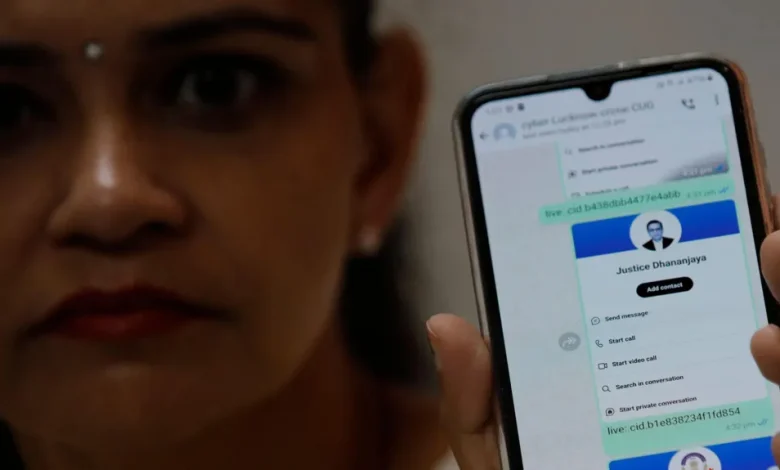The ‘Digital Arrest’ Scam in India You Must Be Very Afraid Of Here

Crime –>
The scammers forced a top Indian doctor to buy a smartphone with which they kept her on video surveillance for three days, seeing everything she did at home
BBC | For a harrowing week in August, Ruchika Tandon, a 44-year-old neurologist at one of India’s top hospitals, was ensnared in what felt like a high-stakes federal crime investigation.
Yet, it was an elaborate scam – a web of deceit spun by scammers who manipulated her every move and drained her and her family’s life savings.
Under the pretence of “digital arrest”- a term fabricated by her perpetrators – Dr Tandon was coerced to take leave from work, surrender her daily freedoms, and comply with nonstop surveillance and instructions from strangers on the phone, who convinced her she was at the centre of a grave investigation.
The “digital arrest” scam involves fraudsters impersonating law enforcement officials on video calls, threatening victims with arrest over fake charges, and pressuring them to transfer large sums of money.
In Dr Tandon’s case, they stripped her and her family of nearly 25m rupees ($300,000) across bank accounts, mutual funds, pension funds, and life insurance – years of savings lost in a manufactured nightmare.
She is not alone. Indians lost over 1,200m rupees to “digital arrest” hoaxes between January and April this year, according to official figures. These figures only scratch the surface, as many victims don’t report such crimes.
Things are so bad that even Prime Minister Narendra Modi talked about the scam in his monthly radio talk in October.
“Whenever you receive such a call, don’t be scared. You should be aware that no investigative agency never inquires like this through a phone call or a video call,” he said.
India faces a range of cyber crimes, from fake investment and trading to dating scams. But the “digital arrest” scam stands out as especially elaborate and sinister – meticulously planned, relentless, and invasive to every part of a victim’s life.
Sometimes scammers reveal themselves during video calls, while other times they remain hidden, relying solely on audio. The plot could be straight out of an outlandish Bollywood thriller – except it is carefully choreographed.
On that fateful first day, scammers posing as officials from India’s telecom regulator called Lucknow-based Dr Tandon, claiming her number would be disconnected due to “22 complaints” of harassing messages sent from it.
Moments later, a man claiming to be a senior police officer took over. He accused her of using a joint bank account with her mother to launder money for women and child trafficking.
In the background, a jarring chorus of voices echoed, “Arrest her, arrest her!”
“The police will be coming in five minutes to arrest you. All police stations have been alerted,” the man warned.
“I was angry and frustrated. I kept saying this can’t be true,” Dr Tandon recalls.
The officer seemed to soften, but with a catch. He said India’s federal detective agency, the Central Bureau of Investigation (CBI), would take over as it was a “matter of national secrecy”.
“I will try to talk and persuade them not to put you in physical custody. But you have to be in digital custody,” he insisted.
Dr Tandon used a feature phone that lacked video calling, making it impossible for the scammers to proceed. So they forced her to drive to a store and buy a smartphone.
Over the next six days, three men and a woman, posing as police officers and a judge, kept her under constant surveillance on Skype, with her phone camera running nonstop.
They made her wake up her students at night to buy extra data packs to keep the scam going. She was required to place the phone throughout the house – while cooking, sleeping, and even outside the bathroom – tracking her every move.
She was also forced to lie to her hospital and relatives, claiming she was too ill to work or meet anyone. When an uncle visited, they ordered her to hide under a bed, with the phone camera running.




